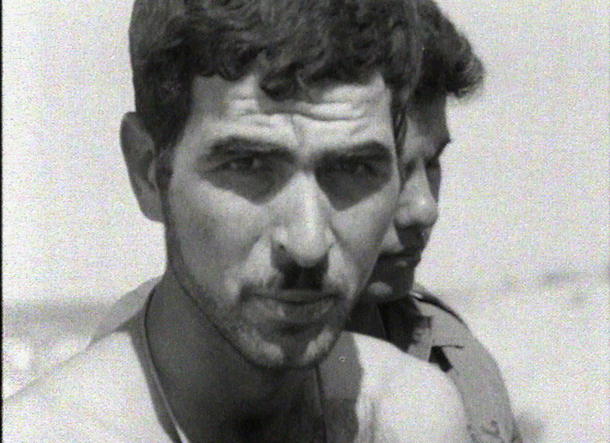
Dir.: Mor Loushy; Documentary; Israel/Germany 2015, 87. Min.
The Six Day War of 1967 saw Israel fighting against the armies of Egypt, Jordan and Syria. At the end of the war, Israel had trebled its territory. But whilst the jubilation in the country itself – and, as TV documents show – with its western allies, was over-whelming, some of the returning soldiers in a Kibbutz, gathered around a tape recorder and voiced their concern for the future. Among the witnesses were the authors Amos Oz and Avraham Shapira, who today discuss with their fellow soldiers the impact of the war which changed the State of Israel for good.
Listening to the voices of the participants, one can well understand why the military allowed only 30% (!) of the transcripts to be published at the time. Most of the soldiers started the war in the absolute belief that they had to save the existence of their country. After all, Israel faced the might of three armies, which surrounded their country. But the reality of the war told the soldiers a different story. To start with, the opponents were woefully prepared and led, which is documented best by the clips from the Sinai peninsula, where Egyptian soldiers surrendered and fled when their tanks could not move in the desert. But the main impact was the general attitude of the soldiers: for most of them, war was an overwhelming and new experience. They were after all not cold-blooded killers, but soon faced the issue of how to react towards the civilian population: were they really non-combatants or were they armed, ready to attack. In the chaos of the fighting, many of the witnesses admit, they chose to err on the safe side – an only too human decision made amidst the mayhem of killing. And whilst the army had given out orders, which could be interpreted as “show no mercy”, it soon became clear that some Arab prisoners were executed. The witnesses all agree that during fighting their thoughts were concentrated on the question of would happen if the situation were reversed – again a rational thought, since the combined Arab armies had only one target: to drive the Israeli’s into the sea. Worst of all was the plight of the refugees, who were ‘evacuated’ from their towns in lorries and “resettled” in tents on the Gaza strip. As one of the participants mentioned “know I saw what the Holocaust was”. And whilst the newsreel clips show just euphoria, when the Israeli troops “unified” Jerusalem, and “liberated” the West Wall (‘Wailing Wall’), a mother of a fallen Israeli soldier cried out: “the West Wall are just stones, not worth a fingernail of my son”.
Loushy points out that it was at that point that the meaning of Judaism – which forbids the sanctification of places or objects – was distorted by those who wanted a “Greater Israel” in the name of their religion. Apart from one member of the original witnesses, all men are sure today that the victory of 1967 led to more and harsher conflicts. Even an “ABC” reporter comments, surrounded by tents at the Gaza strip, “that the only seeds growing here, are seeds of hatred”.
CENSORED VOICES is a painful document: a witness report of a moment in history when Herzl’s version of a peaceful Israel – collaborating with Arabs, sharing a land big enough for all – was laid to rest for good. The force of Zionism, which founded the state, buried it under an avalanche of permanent wars. Israel as a ‘Sparta’ in the desert is a nightmare for Jews and Arabs alike. AS
NOW ON GENERAL RELEASE | THE LONDON FILM FESTIVAL | 7-18 October 2015